Samsung Galaxy S23 Ultra vs Note 20 Ultra: Should you upgrade?
We may earn a commission if you make a purchase from the links on this page.
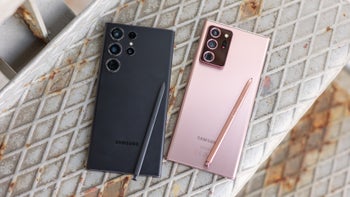
Intro
The Galaxy Note 20 Ultra was supposed to be the last Note phone ever for Samsung, and while many thought that meant the end of the S Pen-wielding flagships, Samsung threw us a curve ball and resurrected the series under a different name.
The Galaxy S23 Ultra is in many ways a grandchild of the Note 20 Ultra: it has the same design with sharp corners, the same wider than usual screen aspect ratio, and most importantly, it's got the S Pen conveniently tucked inside it.
Just call it a Note, Samsung!
So in this article, we compare the last one in the great Note family of devices against its newest grandchild that now launched under a different name. Let's see what's new, what's improved, and is this the moment for Galaxy Note 20 Ultra users to finally upgrade.
Galaxy S23 Ultra vs Galaxy Note 20 Ultra in a nutshell:
- Very similar design, but S23 Ultra is a bit heavier
- S23 Ultra processor wipes the floor with the Note 20 Ultra
- S23 Ultra shoots better night photos and can zoom further and better
- Battery life has also improved a great deal
- No meaningful change in charging speeds
- S23 Ultra has boomier loudspeakers that sound better
- Note 20 Ultra has expandable storage, S23 Ultra does not
Table of Contents:
Read more:
- Samsung Galaxy S23 Ultra Review: no big new feature, but SO MANY smaller improvements
- Galaxy S23 Ultra vs iPhone 14 Pro Max vs Pixel 7 Pro: Camera Comparison
- Galaxy S23 series battery life
Design and Display Quality
The S23 Ultra and Note 20 Ultra look alike, but the S23 Ultra is heavier and has new camera styling
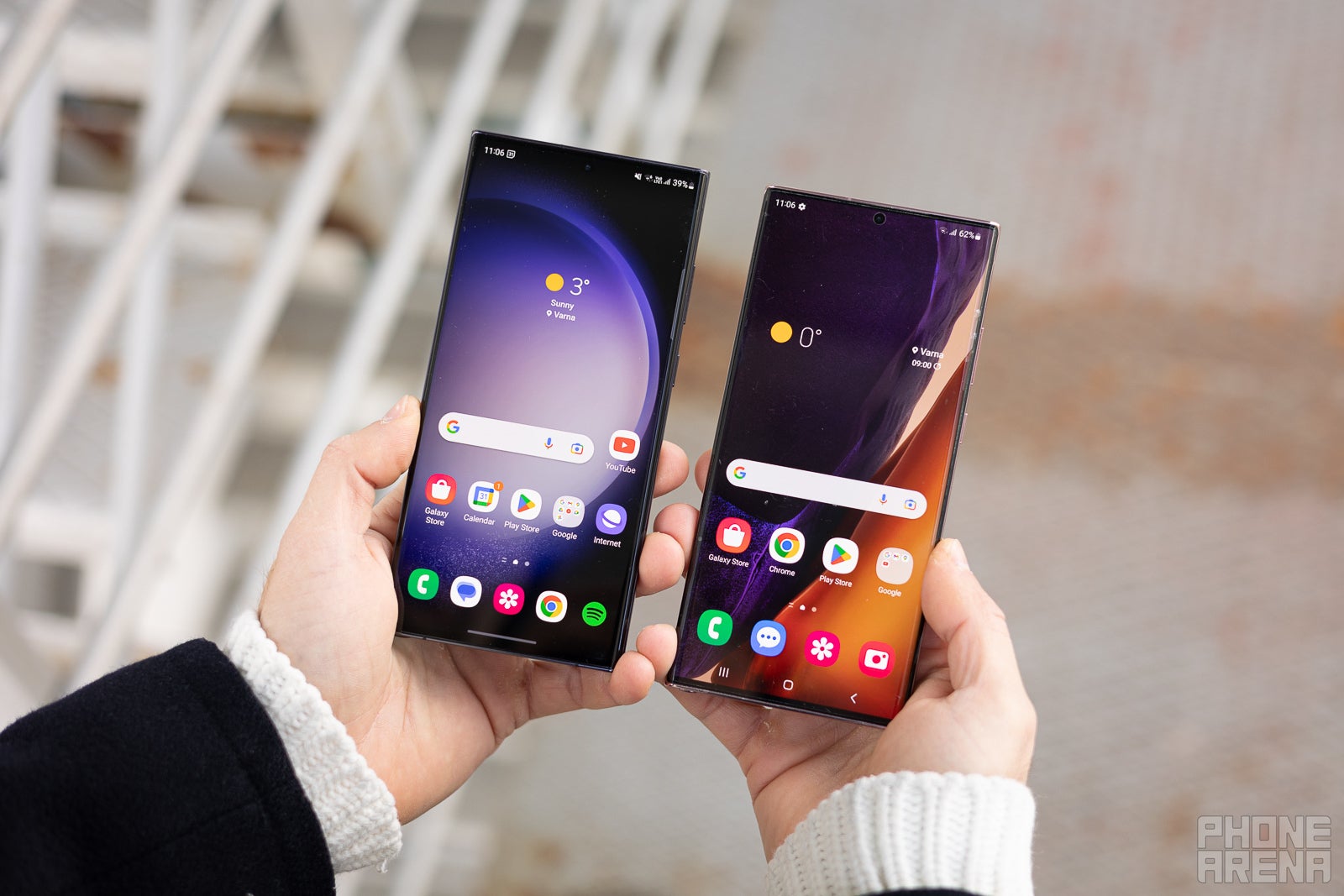
(Image Credit - PhoneArena) The Galaxy S23 Ultra carries Note 20 Ultra design DNA
The S23 Ultra clearly has that Galaxy Note DNA. It's much wider than your typical phone, has sharp corners and it has the S Pen inside.
The construction is mostly the same, a glass and aluminum sandwich, but the S23 Ultra uses the newer Gorilla Glass Victus 2 for improved drop protection, while the Note 20 Ultra uses the first generation of that glass. Both however carry the same IP68 water and dust protection rating.
But hold it in your hand, and you will notice the 8.25 ounce weight of the S23 Ultra versus the lighter weight Note 20 Ultra which stands at 7.34 ounces, so the newer model is a bit less comfortable to lug around in your pocket.
Buttons are placed the same way, power and volume are on the right hand side, and you don't have a 3.5mm headphone jack on either of these phones.
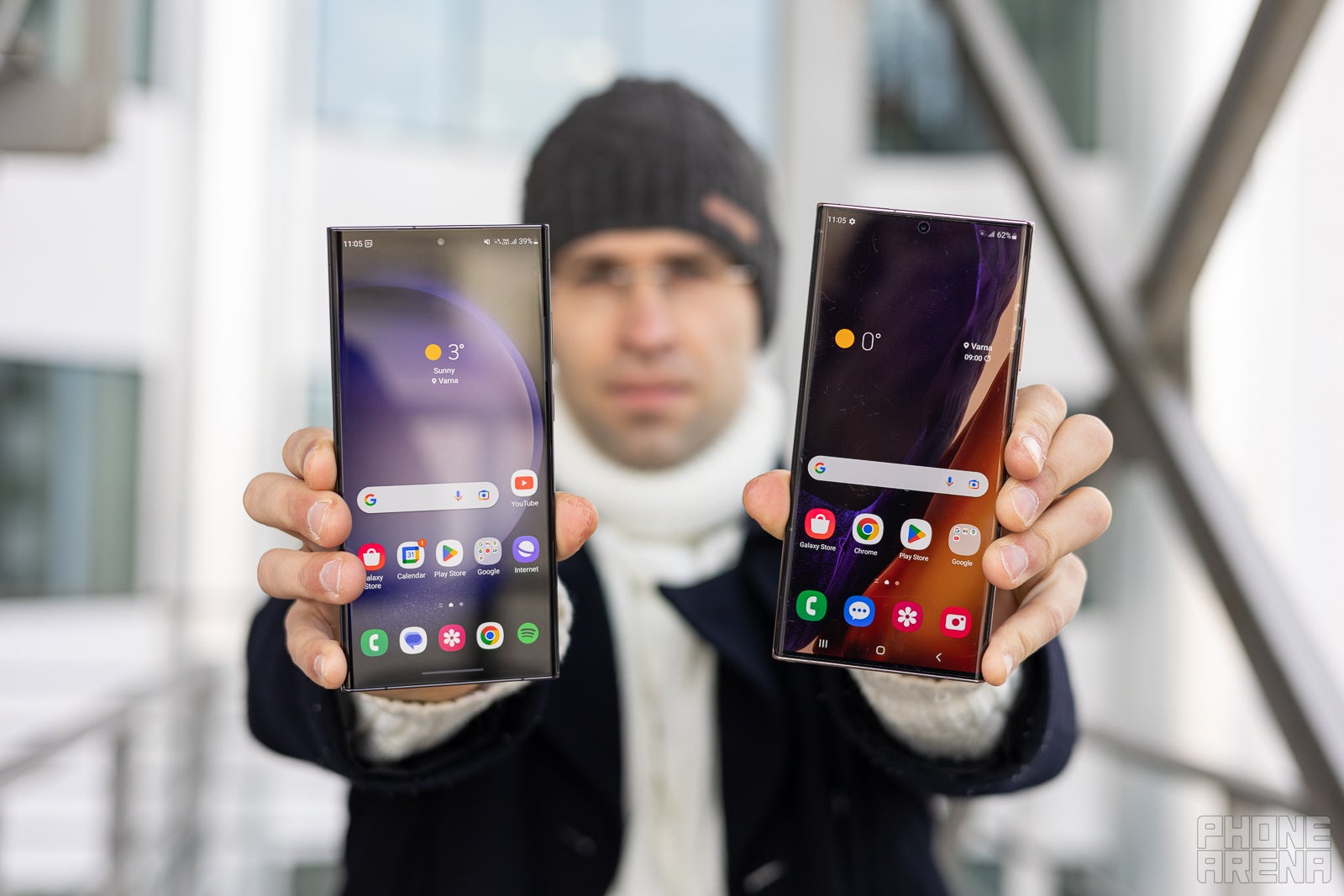
(Image Credit - PhoneArena) A few smaller improvements make the screen better on the new model
The S23 Ultra comes with a newer and improved AMOLED screen. It's just a smidgen smaller actually, at 6.9 inches vs 6.8 inches, but you probably won't even notice that.
Display Measurements:
Both screens come tuned to the default Vivid mode, but you can go into settings and change that to a more toned down Natural mode, which we recommend.
The S23 Ultra display is just a bit better when you look at the scientific measurements above, it is more color accurate. What most users will notice is that it gets a bit brighter outdoors and a bit dimmer for night time use, the latter of which we appreciate a lot.
You can also register your face for 2D face unlock, which is not quite as secure and doesn't work very well in low light, so keep that in mind.
Performance and Software
The new Snapdragon 8 Gen 2 in the S23 Ultra is a massive leap forward
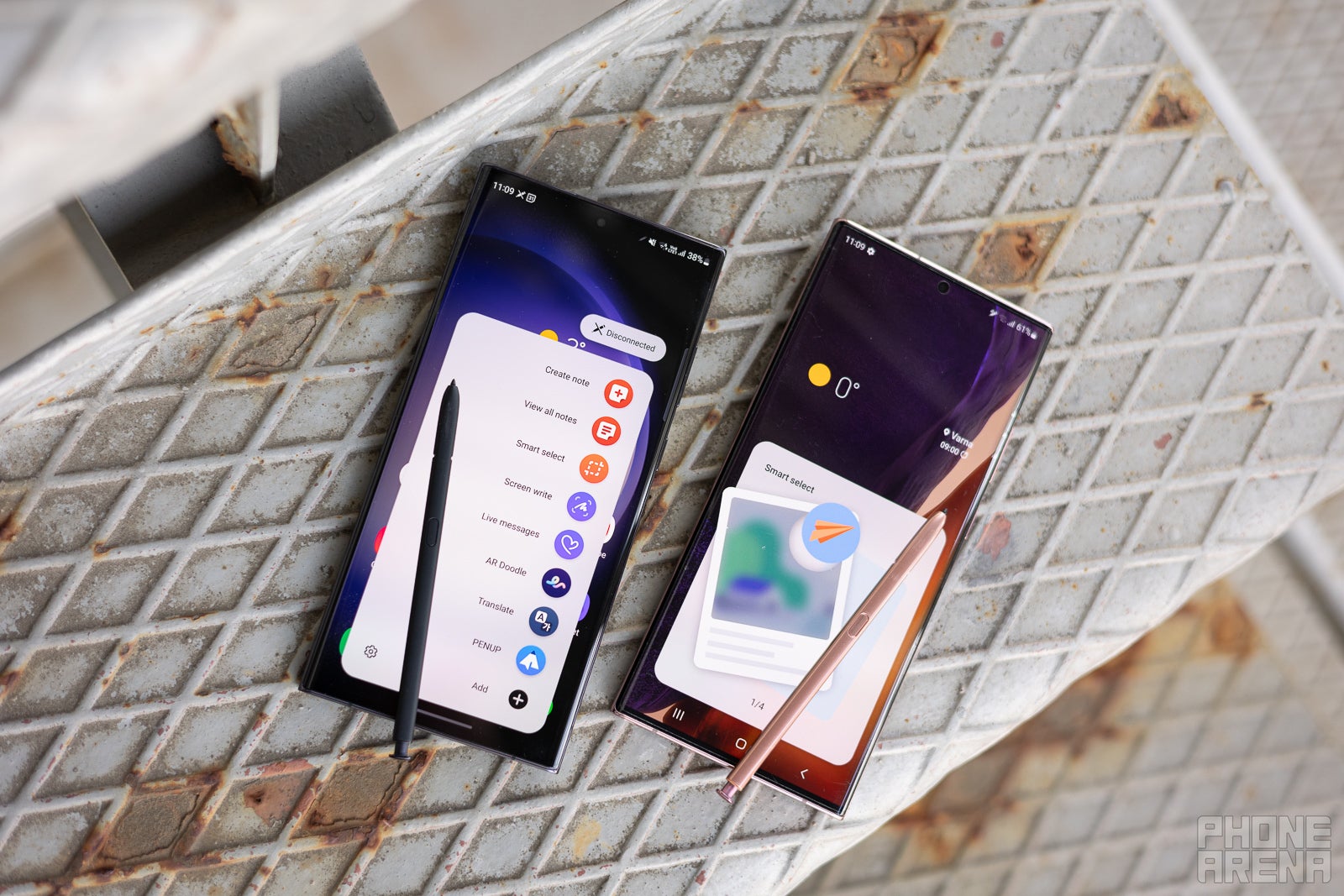
(Image Credit - PhoneArena) The S23 Ultra brings a massive change in speed
The big story about the S23 Ultra is that Samsung is now using a Snapdragon chip for all models of this phone, regardless of where they are being sold.
Previously, including on the Note 20 Ultra, you have a U.S. model with a Snapdragon processor, while the rest of the world got treated worse with a lesser Exynos chip, so we're glad to see that unfair treatment ends with the newer phone.
And the Snapdragon 8 Gen 2 inside the S23 Ultra is a massive improvement. It's the biggest generational leap in processors in the past few years, and you can tell that the difference to the much older Note 20 Ultra is only amplified.
Performance Benchmarks:
In the GeekBench CPU test, the new S23 Ultra scores a whopping 70% faster in single-core speeds and nearly 80% faster in multi-core.
And for gaming, the 3D Mark Wildlife Extreme Stress test shows that the S23 Ultra goes for longer without throttling and reaches massive improvements too. The initial score is nearly 2.5X better than the Note 20 Ultra, and even after 20 minutes of gaming, the Low score is still nearly double that of the Note.
This is a kind of performance improvement that alone is worth considering an upgrade.
It's worth mentioning that the Note 20 Ultra base model came with 128GB of on-board storage, while the S23 Ultra has double that in the base model, which is a very meaningful upgrade.
However, at the same time, you did have a microSD card slot for expandable memory on the Note 20 Ultra, while the S23 Ultra lacks expandable storage.
The S23 Ultra also comes with longer software updates. It launches with Android 13 with One UI 5.1 and Samsung promises 4 years of major OS updates and 5 years of security updates, so it will get Android 17 in the future, while the Note 20 Ultra is nearing the end of its support cycle soon.
Camera
The new 200MP main camera is better at night and the S23 Ultra has improved dynamic range
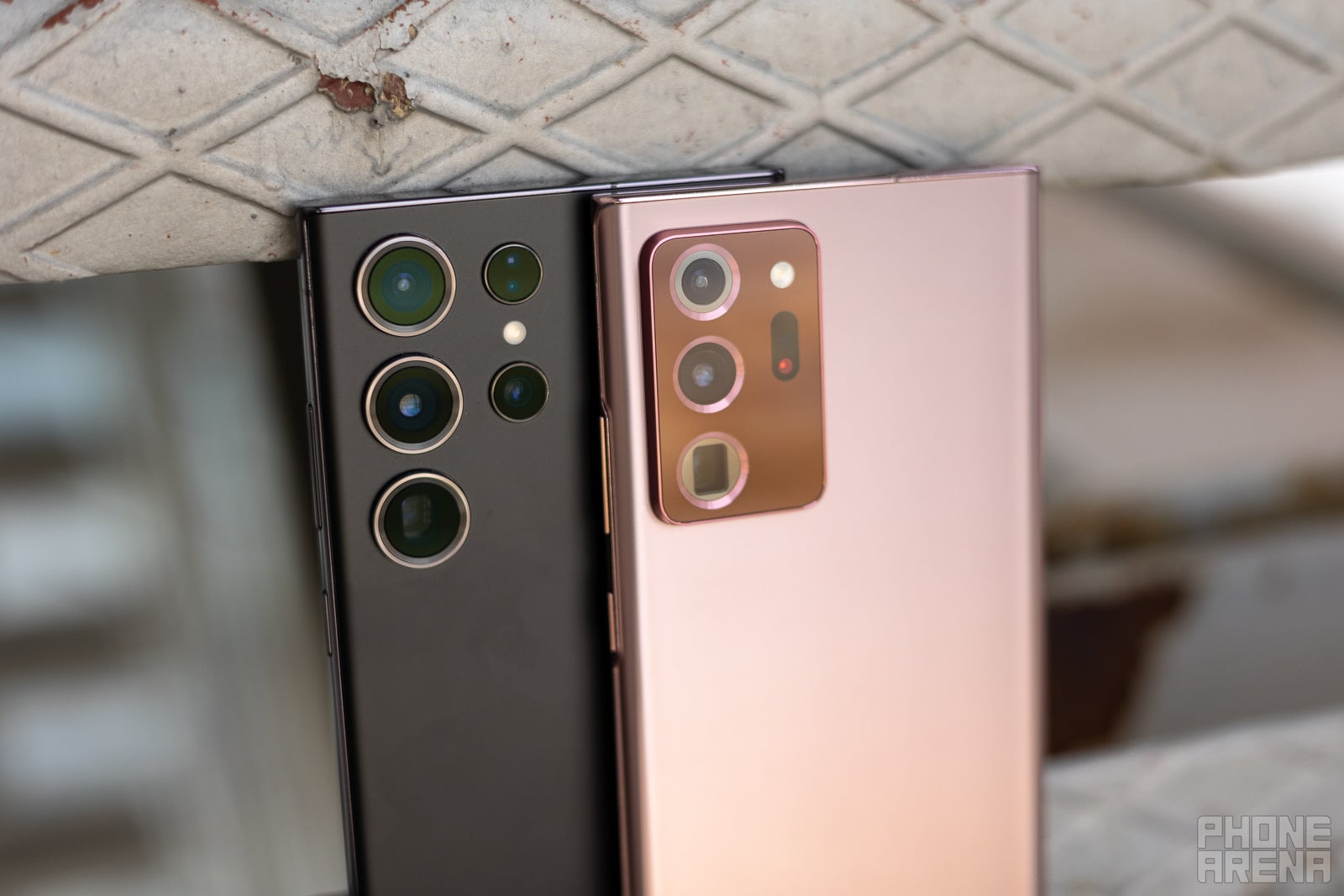
(Image Credit - PhoneArena) Big improvements to night photos and more versatile zoom
On the camera front, the big improvement is without a doubt that brand new 200MP main camera sensor that Samsung now uses.
Not just that, though. While the Note used a single 5X zoom camera, the S23 Ultra has two zoom cameras, one at 3X zoom and another 10X periscope telephoto shooter. It's just way more versatile.
Main Camera - Day
During the day, the big change has got to be with just the dynamic range and colors as the S23 Ultra has a much wider dynamic range than the Note 20 Ultra. Highlights are often lost on the Note 20 Ultra as you can see in the building on the second shot above and clouds are portrayed better on the newer phone. Colors are warmer on the S23 Ultra as well.
Zoom Quality
The S23 Ultra has the more versatile zoom and improved color processing that result in better images all around. Only at 5X zoom where the Note 20 Ultra has the advantage of a dedicated camera you can notice superior detail out of that phone.
At longer zoom ranges, the S23 Ultra is vastly better than the Note 20 Ultra, and we were shocked at how good the 30X photo on the S23 Ultra looks compared to the Note 20 Ultra!
Ultra-wide
The ultra-wide camera benefits from the same advantages as the main camera, but just because of that wider perspective you can appreciate the higher dynamic range so much more here.
Portrait Mode
It's hard to compare the two phones at 1X portrait mode because of their different field of view, but when you go for the close-up portrait, you have the 3X mode on the S23 Ultra vs 2X on the Note 20 Ultra. We cannot say that in itself is an advantage, but the processing and subject separation is much better on the newer phone. In the case above, notice how the phone recognizes the edges of my glasses on the S23 Ultra, while it blurs part of them on the Note 20 Ultra.
Selfies
For selfies, the S23 Ultra lifts up the shadows and uses more aggressive sharpening, while the Note 20 Ultra has softer detail and a more contrasty look with much deeper shadows. We think the S23 Ultra goes a bit overboard with the processing and those shadows are way too bright, so we are not sure that the selfie camera is actually an improvement.
In terms of video recording quality, the stabilization is now better on the S23 Ultra and this is noticeable if you walk while recording video, so that's a plus. However, the aggressive sharpening on the S23 Ultra results in coarse detail compared to a more pleasing software look on the older Note 20 Ultra. We again notice the lifted shadows, and it's a slightly more processed look than we'd prefer.
The jump in quality is best seen at night and low light conditions where the newer S23 Ultra captures a lot more light and just looks better, but during the day, it's a mixed bag.
Audio Quality and Haptics
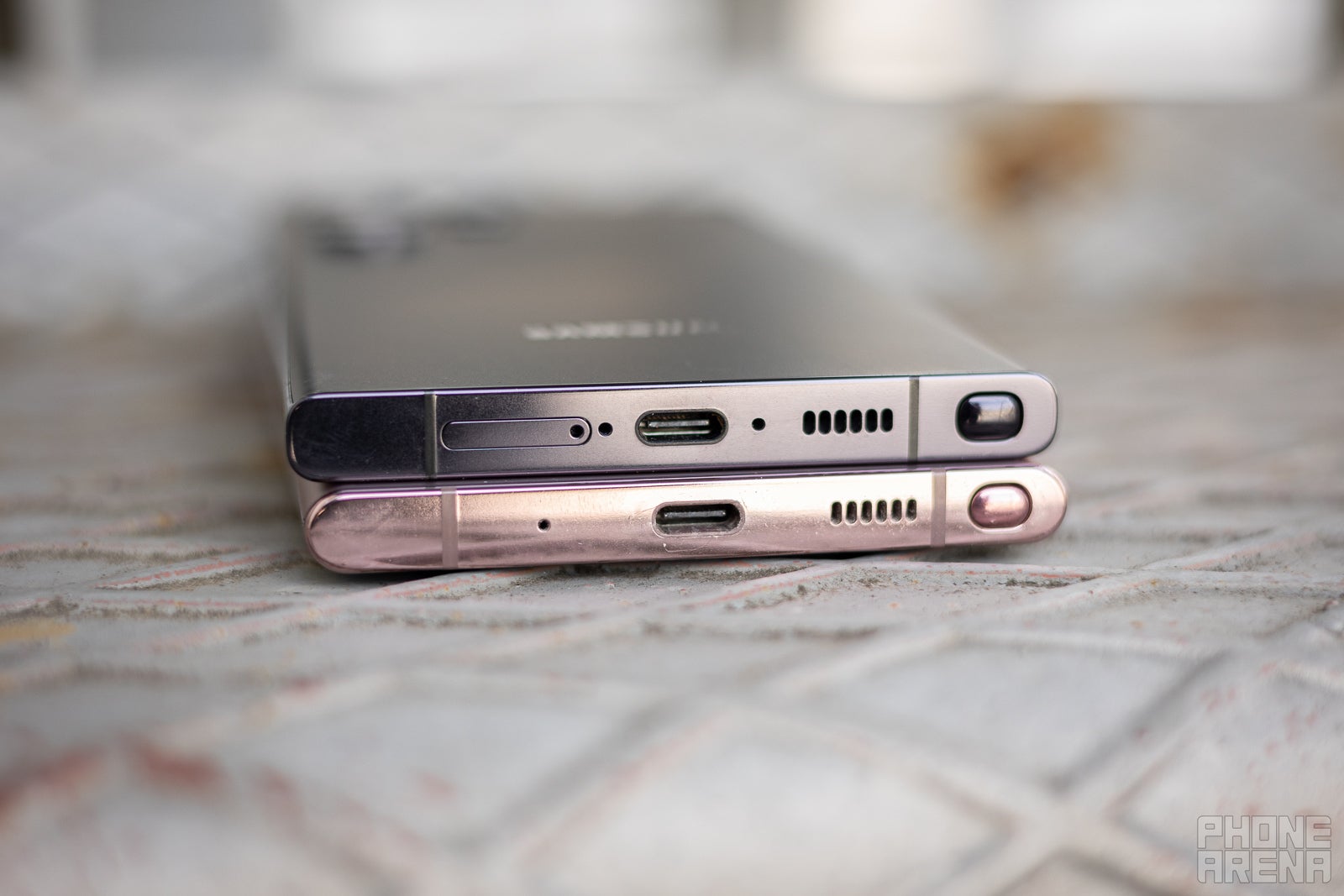
(Image Credit - PhoneArena) Boomier sound on the S23 Ultra is a big step up from the Note
One area where the S23 Ultra really brings a huge improvement is the speaker quality. With boomy audio and defined lower end, the S23 Ultra is among the best sounding phones we've ever tested (almost as good as the iPhone 14 and iPhone 13 series, but not quite as good as the industry-leading Asus ROG Phone 6).
We were, however, slightly disappointed that Samsung has missed the opportunity to deliver a needed upgrade in haptics. The vibration feedback you get out of the S23 Ultra is still not quite as precise as on other phones, and it's not a huge improvement from the Note 20 Ultra.
Battery Life and Charging
Thank a larger battery and a more efficient processor for the amazing S23 Ultra battery life
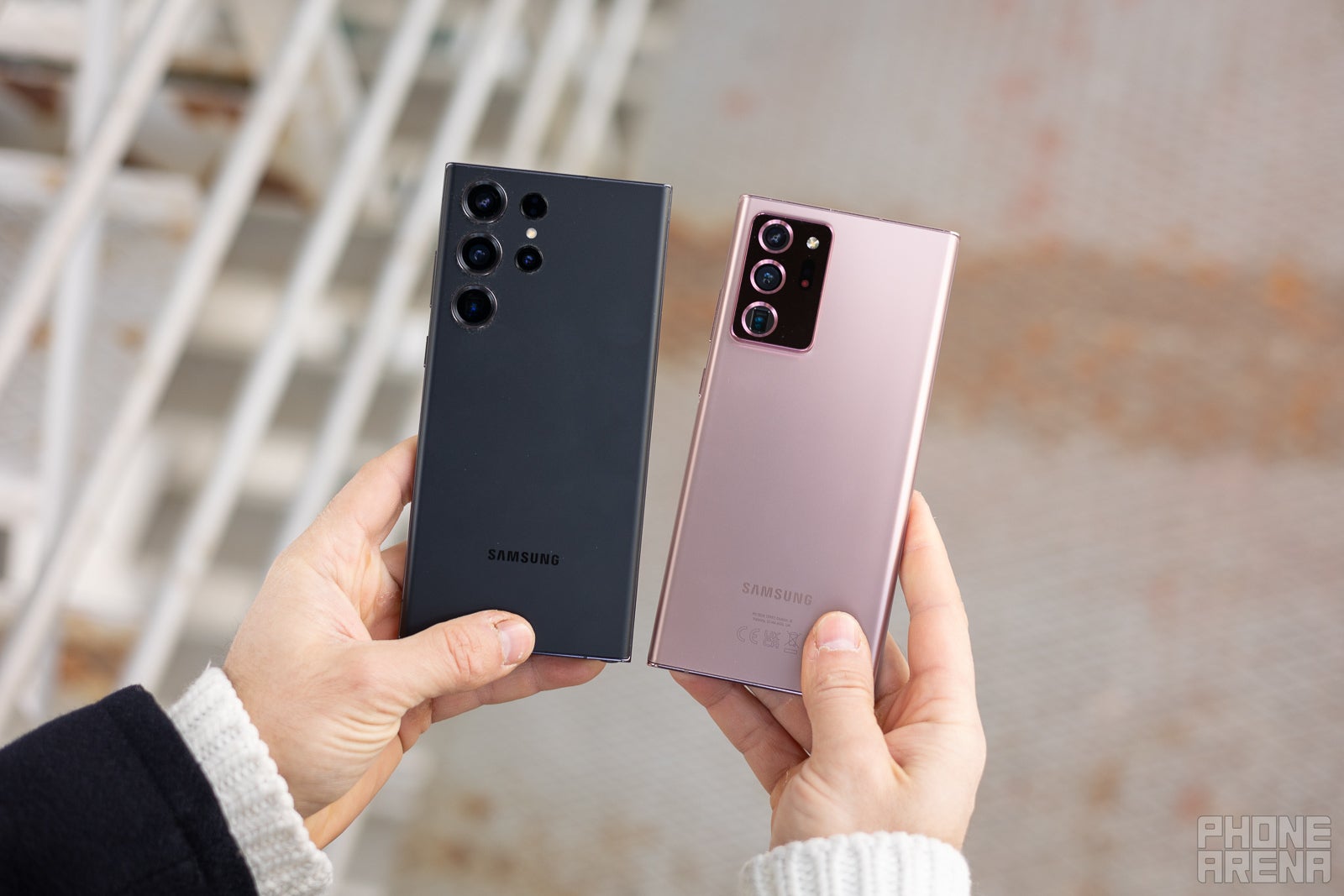
(Image Credit - PhoneArena) The S23 Ultra lasts more than a day and is a big step up in battery life
The S23 Ultra has a 5,000 mAh battery, a step up from the 4,500 mAh battery on the Note 20 Ultra, but while that is a welcome improvement, it's also about the new and much more efficient Snapdragon processor.
Take a look at our independent battery test results below that showcase the exact difference in battery life across few different use-cases.
PhoneArena Battery Test Results:
We have to mention that we configure all phones we test at the same brightness level to ensure an equal playing field.
The new S23 Ultra scores better in our web browsing test, and it also lasts way longer in 3D gaming, but just notice the massive doubling of battery life on the YouTube video streaming test.
In real-life use, the S23 Ultra lasts us a day and a half on average, and with modest use it can go even two days, something that we can rarely get out of the Note 20 Ultra.
When it comes to charging speeds, the S23 Ultra supports 45W wired charging while the Note 20 Ultra maxes out at 25W.
A full charge with the 45W charger takes around 1 hour and 5 minutes on the S23 Ultra, and about 1 hour and 20 minutes on the Note 20 Ultra, so it's not a massive difference, but if you are in the habit of getting a quick 30-minute top-up at lunch, you will notice the faster charging speeds on the newer model.
Interestingly, wireless charging is a bit slower on the S23 Ultra at 10W compared to the 15W wireless charging speeds on the Note 20 Ultra. Again, a small difference, but one worth noting.
Specs Comparison
And here is a Galaxy S23 Ultra vs Note 20 Ultra specs comparison:
| Specs | Galaxy S23 Ultra | Galaxy Note 20 Ultra |
|---|---|---|
| Dimensions | 163.3 x 78 x 8.9 mm | 164.8 x 77.2 x 8.1 mm |
| Weight | 234 g (8.25 oz) | 208.0 g (7.34 oz) |
| Screen | 6.8-inch OLED, 19.3:9 aspect ratio 1440 x 3088 pixels 1750 nit max brightness 1-120Hz refresh rate | 6.9-inch OLED, 19.3:9 aspect ratio 1440 x 3088 pixels 1500 nit max brightness 10-120Hz refresh rate |
| Processor | Snapdragon 8 Gen 2 (all versions) | Snapdragon 865+ (U.S. model) Exynos 990 (Int'l models) |
| RAM | 8GB or 12GB LPDDR5 | 12GB LPDDR5 |
| Cameras | 200MP main cam, 23mm f/1.7 12MP ultra-wide, 13mm f/2.2 10MP 3X zoom, f/2.4 10MP 10X zoom, f/4.9 12MP front cam | 108MP main cam, 24mm f/1.8 12MP ultra-wide, 13mm f/2.2 12MP 5X zoom, f/3.0 - 10MP front cam |
| Battery Size | 5,000 mAh | 4,500 mAh |
| Charging Speeds | 45W wired 10W wireless | 25W wired 15W wireless |
| Price | MSRP from $1,200 | MSRP from $1,300 (but sold much cheaper now) |
If we had to single out the biggest differences, those would be the added weight of the new phone, the faster processor, but less RAM in the base model, as well as that new 200MP main camera and larger battery size on the S23 Ultra.
Summary and Final Verdict
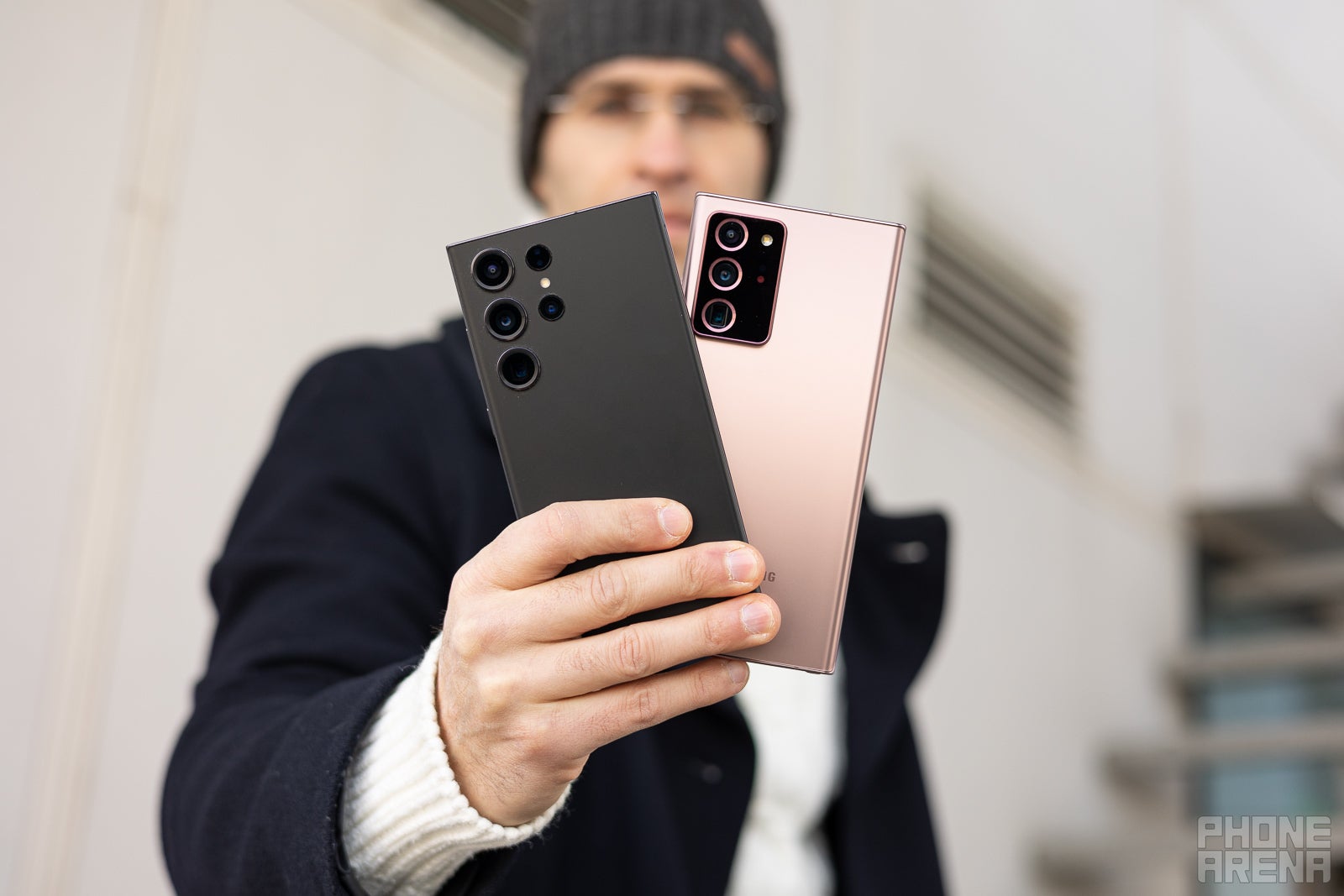
(Image Credit - PhoneArena) The S23 Ultra is the perfect moment for Note 20 Ultra users to upgrade
So is the S23 Ultra launch that one right moment for lovers of Note phones to finally upgrade their older devices?
For us, the answer is a resounding "yes". The S23 Ultra feels more like a Note phone than an S series phone, it carries all the best features of the Note series, and the S Pen experience is as refined as it gets.
On top of that, you get a massive improvement in performance speeds, in battery life and the camera is vastly improved at low light, and has neat tricks like 50MP high-res shooting that enthusiasts will appreciate.
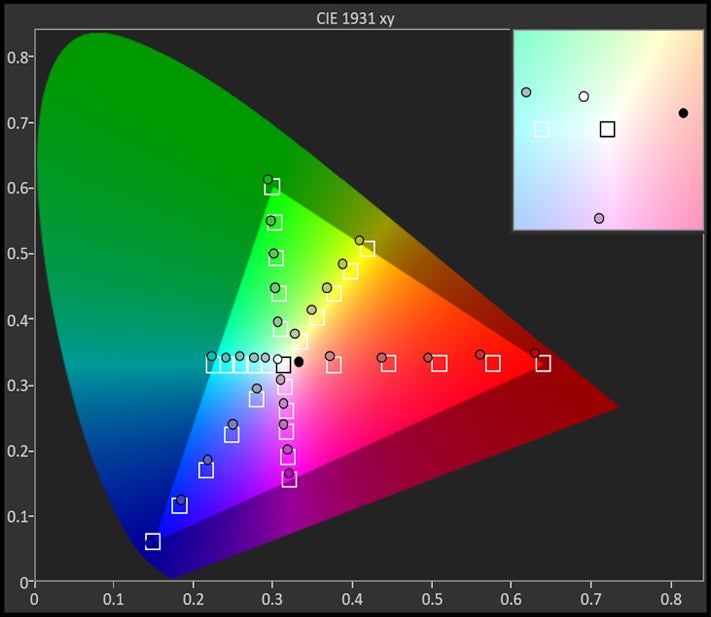
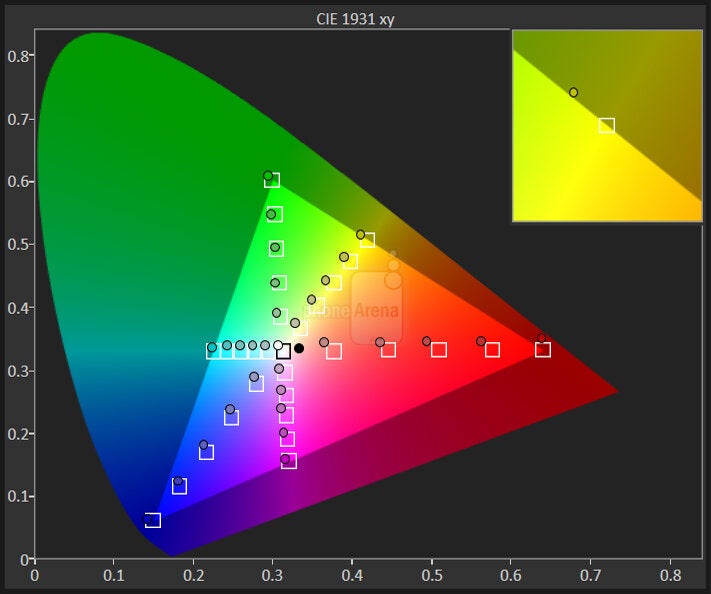






































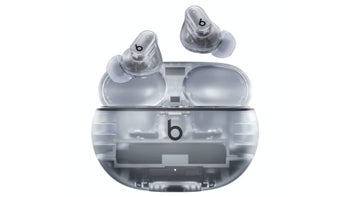






Things that are NOT allowed: